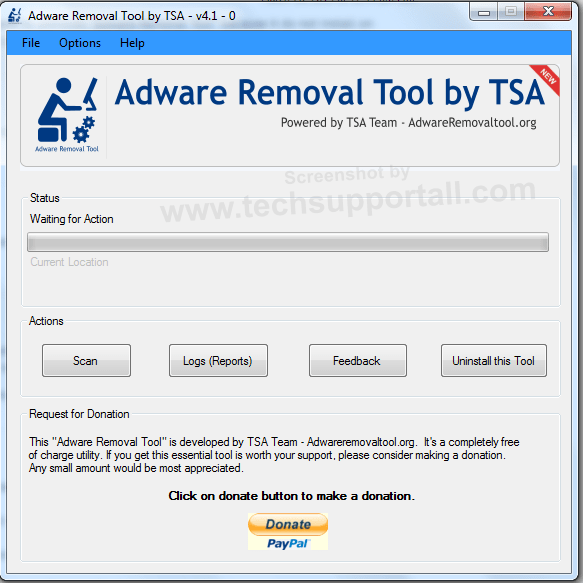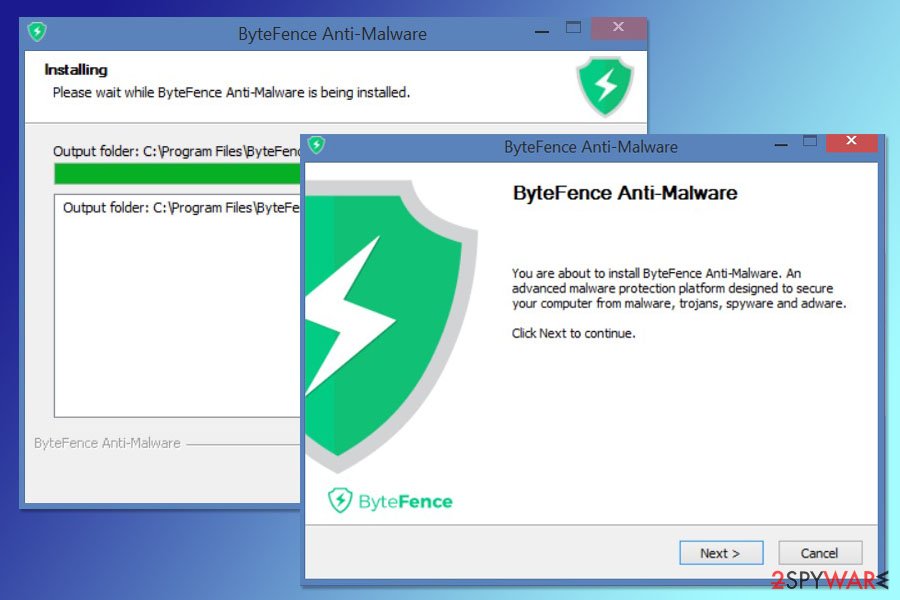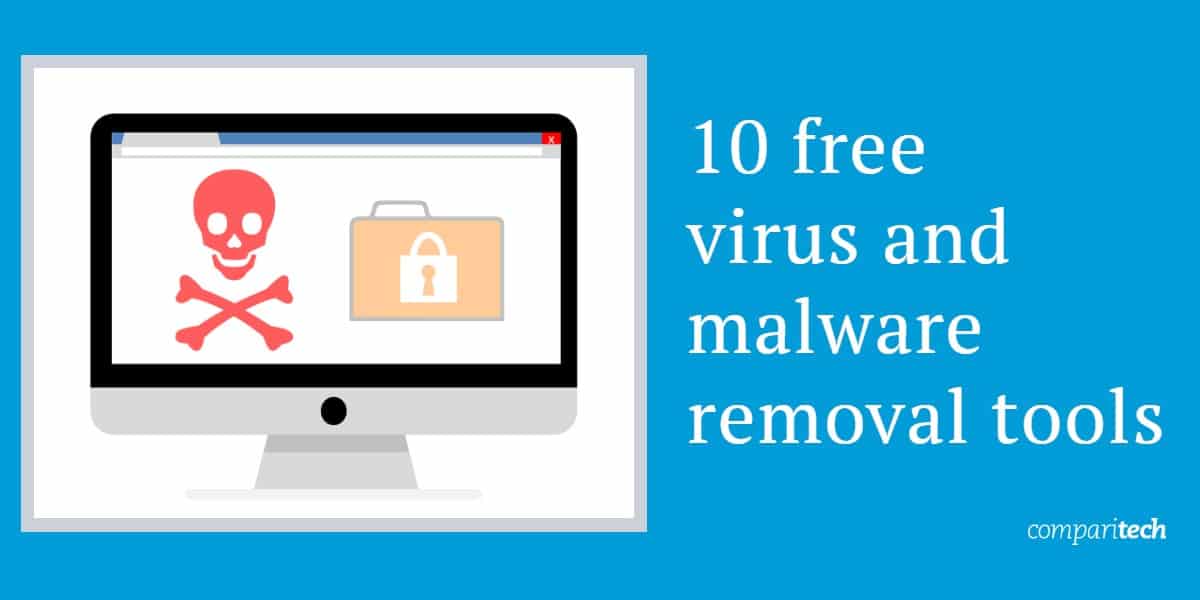Today we’re going to discuss PUP Malware. No, not adorable labrador puppies!
PUP Malware - Potentially Unwanted Programs.
Nowadays, it becomes increasingly different to tell the difference between a legitimate program and a potentially unwanted one and between that and an actual nasty virus infection. A question that a lot of users have been asking lately is “What is a PUP malware?” and here we are going to answer that question and also give you some important and useful pieces of advice on how to properly.


- Malwarebytes Anti-Malware. Outil de protection contre les logiciels malveillants. Licence: Gratuit OS: Windows XP Windows Vista Windows 7 Windows 8 Windows 10.
- You can use Hitman Pro with your existing anti-malware software to create an additional layer of security for your valuable data. The software specializes in scanning advanced kind of malware like ransomware and rootkit. To detect malware, Hitman Pro uses anti-virus engines like Prevx, Dr.Web, G Data, IKARUS, Emsisoft, Kaspersky, and Bitdefender.
- Nov 04, 2015 Antimalware programs like Malwarebytes pop up warnings when they detect “potentially unwanted programs” you might want to remove. People call PUPs many other names, including “adware” and “crapware.” You almost certainly don’t want these programs on your computer, but they’re categorized differently for legal reasons.
You may have noticed a pop-up when you were running a malware scan on your computer alerting you to something like a ‘non-malware detected.’ That’s today’s topic, programs that may not be malware but get picked up by scanners anyway.
PUPs have also been referred to as “adware” as the most common way they get on a system is by bundling the program with a legitimate program you want to install.
For example, you might want to install a free antivirus program on your computer to be more security conscious. Awesome! But when you go through the installation process there’s a checkbox automatically checked that you ignored and it said something like ‘I agree to the terms and want to install other program X.’
When the install finished you’ll have two new programs - Antivirus and the useless ‘other program X.’
Quick Fact
The term ‘Potentially Unwanted Program’ was originally coined by McAfee because the companies behind PUPs objected to being called “spyware.”
They argued technically (and legally) PUPs aren’t actually a form of malware. Malware, by definition, is a type of malicious software that infects your computer without your consent.
PUPs on the other hand, according to the definition on SearchSecurity, can argue that you technically agreed to install them and signing their EULA agreement - even if it was a little shady.

Are PUPs harmful?
So are these programs doing you any harm? Well, yes and no. PUPs aren’t going to steal your credit card information, hack you, or run a keylogger to steal your passwords.
But that doesn’t mean they are benevolent either. Here's an extensive list of suspicious actives that PUPs can perform, notably including:
- Running Advertisements: Many PUPs add pop-up advertisements to otherwise clean web pages, replace native ads with their own, or even force users to watch video ads before letting them close out of the tab!
- Modifying Web-Browser Settings: Some PUPs will change the default home page of your browser, install a browser toolbar that has no value or even add new bookmarks without informing you first!
- Hijacking Search: More malicious PUPs may redirect you to their website when you try to visit a competitor, alter search results you see, insert their own results into the search engine or change the default search engine to a different one!
- Watch Your Activity: The worst kind of PUPs will watch what websites you go to and then sell that data to advertisers!

So while none of those things are particularly nasty, they’re not exactly friendly either. All of these things, especially the toolbars, will slow your system down as well.
Should I remove it?
Absolutely, unequivocally yes! PUPs aren’t doing anything good for your system, they aren’t helping it run faster or doing any good. Take a look at the list above, do you really want a program laying around causing mayhem?
How do I get rid of PUPs?

- Malwarebytes Anti-Malware. Outil de protection contre les logiciels malveillants. Licence: Gratuit OS: Windows XP Windows Vista Windows 7 Windows 8 Windows 10.
- You can use Hitman Pro with your existing anti-malware software to create an additional layer of security for your valuable data. The software specializes in scanning advanced kind of malware like ransomware and rootkit. To detect malware, Hitman Pro uses anti-virus engines like Prevx, Dr.Web, G Data, IKARUS, Emsisoft, Kaspersky, and Bitdefender.
- Nov 04, 2015 Antimalware programs like Malwarebytes pop up warnings when they detect “potentially unwanted programs” you might want to remove. People call PUPs many other names, including “adware” and “crapware.” You almost certainly don’t want these programs on your computer, but they’re categorized differently for legal reasons.
You may have noticed a pop-up when you were running a malware scan on your computer alerting you to something like a ‘non-malware detected.’ That’s today’s topic, programs that may not be malware but get picked up by scanners anyway.
PUPs have also been referred to as “adware” as the most common way they get on a system is by bundling the program with a legitimate program you want to install.
For example, you might want to install a free antivirus program on your computer to be more security conscious. Awesome! But when you go through the installation process there’s a checkbox automatically checked that you ignored and it said something like ‘I agree to the terms and want to install other program X.’
When the install finished you’ll have two new programs - Antivirus and the useless ‘other program X.’
Quick Fact
The term ‘Potentially Unwanted Program’ was originally coined by McAfee because the companies behind PUPs objected to being called “spyware.”
They argued technically (and legally) PUPs aren’t actually a form of malware. Malware, by definition, is a type of malicious software that infects your computer without your consent.
PUPs on the other hand, according to the definition on SearchSecurity, can argue that you technically agreed to install them and signing their EULA agreement - even if it was a little shady.
Are PUPs harmful?
So are these programs doing you any harm? Well, yes and no. PUPs aren’t going to steal your credit card information, hack you, or run a keylogger to steal your passwords.
But that doesn’t mean they are benevolent either. Here's an extensive list of suspicious actives that PUPs can perform, notably including:
- Running Advertisements: Many PUPs add pop-up advertisements to otherwise clean web pages, replace native ads with their own, or even force users to watch video ads before letting them close out of the tab!
- Modifying Web-Browser Settings: Some PUPs will change the default home page of your browser, install a browser toolbar that has no value or even add new bookmarks without informing you first!
- Hijacking Search: More malicious PUPs may redirect you to their website when you try to visit a competitor, alter search results you see, insert their own results into the search engine or change the default search engine to a different one!
- Watch Your Activity: The worst kind of PUPs will watch what websites you go to and then sell that data to advertisers!
So while none of those things are particularly nasty, they’re not exactly friendly either. All of these things, especially the toolbars, will slow your system down as well.
Should I remove it?
Absolutely, unequivocally yes! PUPs aren’t doing anything good for your system, they aren’t helping it run faster or doing any good. Take a look at the list above, do you really want a program laying around causing mayhem?
How do I get rid of PUPs?
Anti Pups/adware Gratuit Pour
So now that we know what PUPs are and that they really aren’t doing anything good for you, let’s look at removing them. You have two options, if your anti-malware program detects them many can remove the PUPs too, or if not we can go into windows and do it manually.
Many anti-malware programs will automatically sweet PUPs up and quarantine (or flat out delete) them for you. Run your anti-malware scanner and see what it picks up, if you see any alerts for ‘Potentially Unwanted Programs’ you know better now, get rid of them!
What happens if the problem doesn’t go away, the pesky toolbar is still there in your browser? No problem! We can get rid of them manually as well.
- First hold down the key’s ALT, CTRL, and DELETE,
this will bring up a lock screen, and hit ‘Task Manager’ - Make sure you’re on the ‘Processes’ tab and look through the background applications running on the system.
- Once you find the suspicious PUP, jot down the name and close out of the Task Manager.
- Open up your Control Panel and select ‘Uninstall Programs’
- Locate the pesky PUP and uninstall it!
How do I avoid PUPs?
Once you have cleared out your computer system of PUPs pat yourself on the back, job well done! But clearing out the symptoms doesn’t solve the problem, does it? In the future you should be wary when you’re installing free software.
Anti Pups/adware Gratuit Logiciel
Unfortunately, as How-To Geek points out, all the popular Windows Freeware download sites include PUPs in their installers these days. It comes down to money, there’s a lot of money sitting on the table for legitimate installers to include these PUPs. For some of them, this might be the only way they make money at all!
So if it’s so prevalent, what can you do about it? Well a lot, actually! Remember these programs aren’t installing themselves on your computer, so if you’re diligent when you install free programs you can avoid the PUPs. PCWorld did a great job showing and explaining how to avoid PUPs, some of the highlights included:
- Usually, there are two options when you install a program, ‘Standard Installation (recommended)’ and ‘Custom Installation.’ It might seem scary to ignore the ‘recommendation’ but don’t pick standard! PUPs can automatically be installed that way!
- When you check ‘Custom Installation’ a few checkboxes might appear that are already checked off. Take a second and read through them if any appeared! These are usually PUP programs trying to make their way onto your system.
- Another common choice installers give you is ‘Express (recommended)’ and ‘Custom Installation.’ Express sounds much better but don’t fall for the trap! That’s just a speedway to installing a PUP!
Anti Pups/adware Gratuit Telecharger
Potentially Unwanted Programs can be a real nuisance but the good news is that they can’t install themselves on your computer. As long as you’re diligent while you install free Windows programs they won’t be able to get onto your system!

